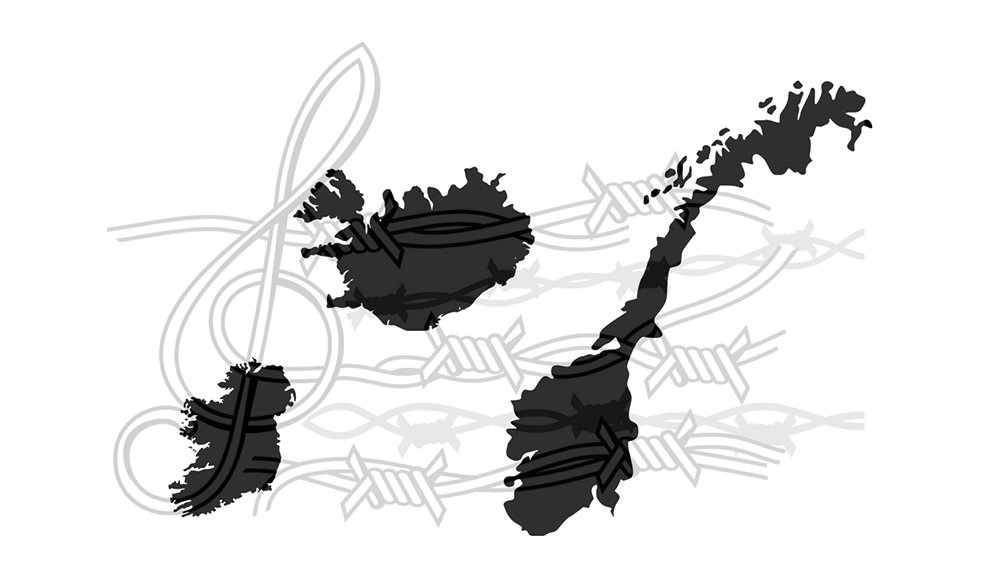Om prosjektet
Musikk er en integrert og essensiell del av menneskers liv, både i gode tider og i tider med krise og isolasjon. Prosjektet PRISONS OF NOTE undersøker opplevelsene av, omstendighetene rundt og tilnærminger til musikk og fengsling i livet til personer som sitter i varetekt, fengselspersonale og interessenter.
Begrepet straffeeksepsjonalisme står sentralt i prosjektet og blir ofte brukt til å beskrive den norske kriminalomsorgen. Det viser til et fengselssystem med lave straffer, få innsatte og humane soningsforhold. Se denne artikkelen for mer om straffeeksepsjonalisme.
Prosjektet ser på forholdet mellom musikk i fengsel (inkludert musikkutdanning, musikkterapi, musikkproduksjon og lytteinitiativer) og de sosiokulturelle, politiske, etiske og estetiske implikasjonene denne kreative praksisen har fra ulike perspektiver.
Prosjektet tar i bruk en internasjonal, komparativ tilnærming forankret i empirisk forskning for å kartlegge nyanser og asymmetrier i straffeeksepsjonalisme fra mindre, perifere jurisdiksjoner i det globale Vesten. Målet er å utforske hvordan musikk brukes – og er til nytte – i fengsler.
Mål
PRISONS OF NOTE bygger på nyere musikkvitenskap og komparativ pønologiforskning. Det bygger på modeller om fengselsetnografi, sosiologi og etnomusikologi, og blir ledet av en musikolog, samt et mangfoldig forskerteam av kriminologer og sosiologer. Prosjektet sammenligner opplevelser av fengselsmusikk i mindre jurisdiksjoner for straffeeksepsjonalisme - som i stor grad har blitt oversett i komparativ kriminologisk og musikologisk diskurs til fordel for en angloamerikansk tilbøyelighet.
Samtidig som vi håndterer økende fengslingsrater over hele verden, samler dette prosjektet kvalitative data fra casestudier i Norge, Island og Irland for å bidra til innovativ, tverrfaglig kunnskap om hvordan musikk brukes i fengsler fra et perifert perspektiv.
På denne måten endrer PRISONS OF NOTE hvordan vi studerer musikk og fengsler, fra isolerte situasjonsstudier om enkeltnasjoner, til sammenkoblede, transkulturelle opplevelser som strekker seg utover nasjonale grenser, og som gir stemme til opplevelser av straffeeksepsjonalisme og "prisons of note".
Finansiering
Norges forskningsråd, FRIHUMSAM, Unge forskertalenter. Nr. 315759
Samarbeid
- Professor Helgi Gunnlaugsson (University of Iceland)
- Professor Þorbjörg Daphne Hall (Iceland University of the Arts)
- Professor Fergus McNeill (Glasgow University)
- Fíona Ní Chinnéide (Irish Penal Reform Trust)
- Åse Svenheim Drivnes (Høgskolen i Innlandet)
- Dr. Katharina Swirak (University College Cork)
- Professor Thomas Ugelvik (Universitetet i Oslo)
Varighet
09.05.2022 - 08.01.2026.

